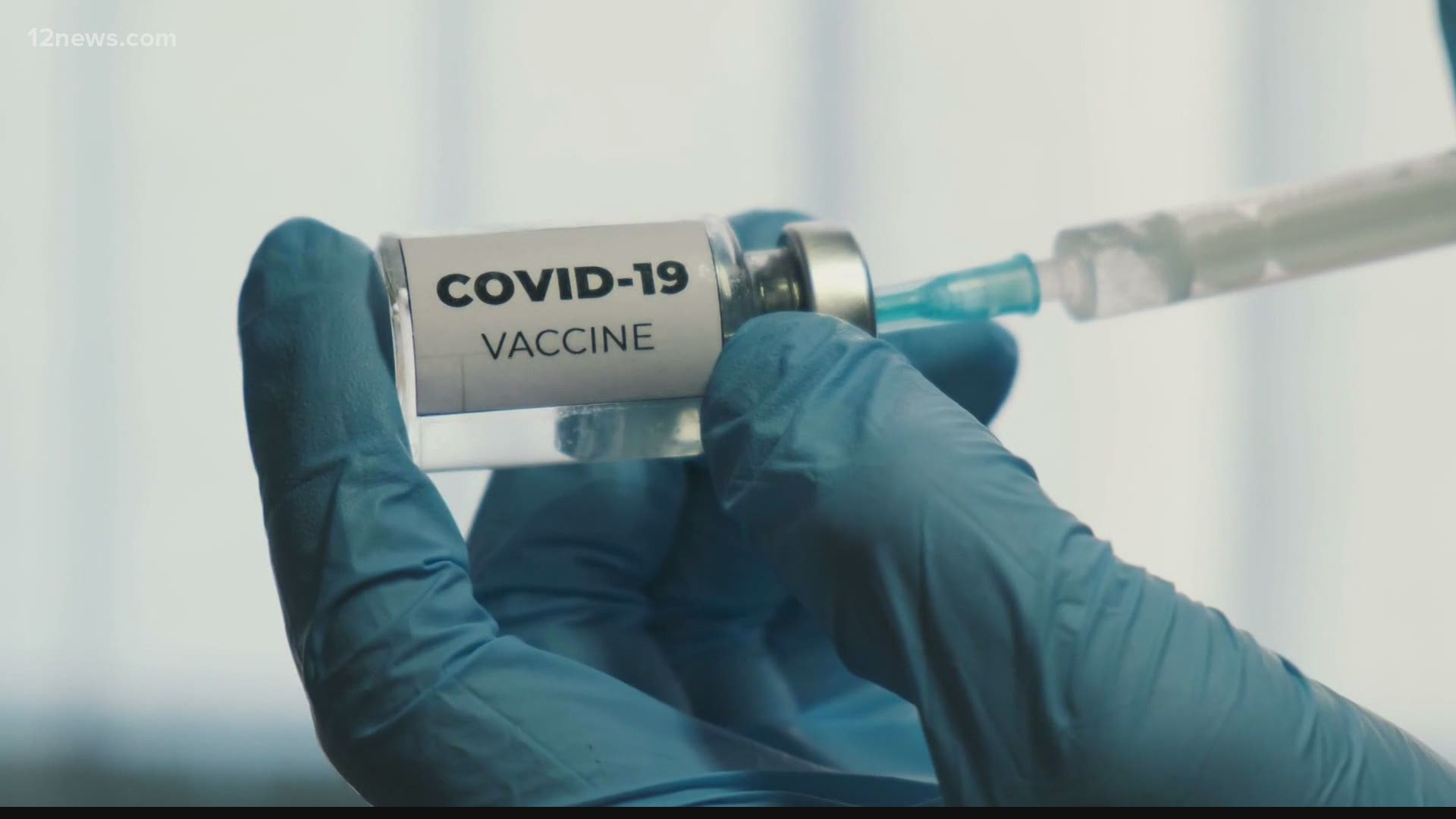PHOENIX — Michael Taber walked into his local Fry’s on Tuesday for a 2:15 p.m. appointment.
After months of waiting, Taber was set to get his first dose of a COVID vaccine.
“If this offers me any protection against a deadly disease like COVID it’s worth taking that chance,” Taber said.
Initially, Taber was nervous. Shots, needles and hospitals are nothing new for the more than 20-year Phoenix resident, but the COVID vaccines are.
Three years ago, Taber was diagnosed with cancer.
“Stage 4 colon cancer,” Taber said. “I asked my doctor when I saw him last week if I had a chance at remission, he said no.”
Taber was told that his case was terminal. He has been getting regular chemo treatments since his diagnosis which, over time, have broken down his body.
He was told that the average person only makes it about two and a half years after being diagnosed, but he has been fighting for three.
“It tells me I’ve beaten the odds, but it also tells me I’m living on borrowed time,” Taber said.
When the COVID-19 pandemic hit last year, it created another health concern. The virus proved to be most deadly towards those who had weakened immune systems.
When news of the vaccine came out, Taber wasn't sure how to feel.
“With my luck over the last three years, I'm afraid of something bad happening,” he said.
After a bad reaction to the flu vaccine 30 years ago, he feared that a bad reaction to the COVID vaccine would add to a host of issues he was already facing.
“I feel bad enough, I don’t want to feel any worse than I already do,” Taber said.
Dr. Ricardo Correa, an endocrinologist at the University of Arizona, answered all of his questions and concerns.
“Usually the side effects will not be the big ones because your immune system is suppressed,” Dr. Correa said.
The side effects that someone experiences from the vaccine come from the immune system’s response.
In a suppressed immune system like Taber’s, Dr. Correa said that the likelihood of having severe side effects is minimal.
Even if there were side effects, they would not build on top of what Taber was already experiencing.
But if you have a unique or serious medical condition like Taber, is the vaccine right for you?
“These are the cases where we are more careful, and we don’t openly recommend getting the vaccine,” Dr. Correa said.
Dr. Correa recommended talking with a primary care physician to see what they say. They should be able to see if the vaccine puts you more at risk based on a specific situation.
After talking with Dr. Correa, Taber talked to his oncologist, who recommended getting the vaccine.
After getting his first dose, Taber hopes that it will provide peace of mind as he continues his fight with cancer.
“If it can extend my life just a little bit longer, it’s worth it,” Taber said.
According to Taber, he only had some soreness at the injection site.
COVID-19 Vaccine
Subscribe to the 12 News YouTube channel to receive notifications on the latest videos about the coronavirus vaccine and the developments on the distribution in the United States.

